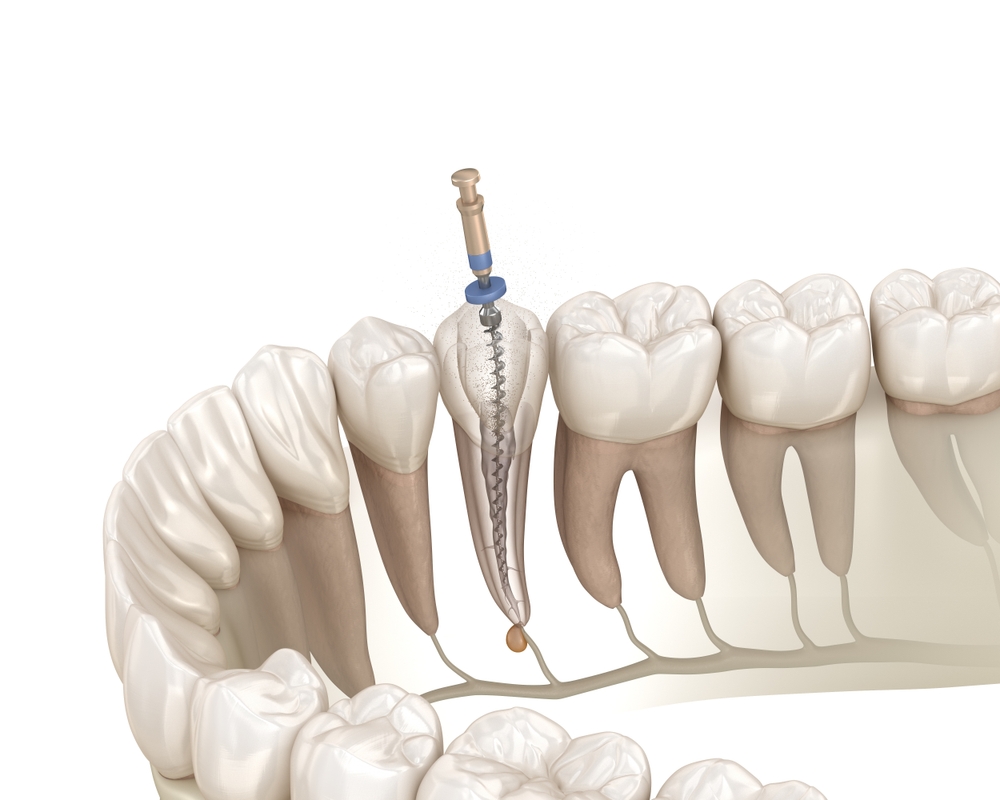Information Library
Start Reading

If you’re suffering from a serious tooth infection or tooth damage, a root canal or extraction are two common ways to alleviate the pain, eliminate the infection, and fix the damage.
Root canal therapy is recommended when teeth can be saved with treatment, while an extraction is performed when the tooth’s structure is too damaged, or a crack goes beneath the gum’s surface, not leaving enough structure for stability or use after the repair. However, some patients opt for extraction because they think it’s less painful and more affordable than a root canal. However, that’s not necessarily true. Philadelphia’s Penn Dental Medicine explains the options, so you can make the right decision.

A root canal is a procedure in which a tooth’s infected pulp is removed, and the interior of the tooth is cleaned and sealed to prevent further infection. It is performed under local anesthesia by an endodontist, a dentist who has received specialized training for the treatment of conditions of the interior of the tooth.
An infected tooth extraction removes a damaged or infected tooth from its socket and is usually performed under localized anesthesia by a dental surgeon or periodontist.
Either procedure repairs the problem, although the results are:
Root canal therapy is virtually painless due to modern techniques and anesthesia. According to the American Association of Endodontists, patients who choose root canal treatment are six times more likely to describe it as painless than patients who opt for tooth extraction.

After a root canal, the tooth and the surrounding area may feel sensitive for a few days. If the infection spreads, your dentist may prescribe antibiotics. Over-the-counter pain relievers may be prescribed for any discomfort afterward, but there should be little to no blood or swelling.
At your follow-up visit, your endodontist will replace the temporary filling with a crown or permanent filling to protect the tooth from future damage.
Tooth extraction generally causes more pain and involves more follow-up visits. Over-the-counter pain relievers will be prescribed, and the area will be packed with gauze to stop bleeding, and ice may be needed to reduce swelling. Stitches may need to be removed if they don’t dissolve. After the area has healed, you will be fitted with a bridge, denture, or implant.
Overall, root canal therapy is easier and time-saving. Endodontic treatment has a high rate of success, with results that last a lifetime. With minimum time and discomfort, your tooth can be saved. And, no bridge, denture, or even implant will feel exactly like your natural tooth.
The cost of a root canal can run from $500 to over $1,000, depending on whether you have insurance. The cost of a tooth extraction can be around $200 if you have insurance, as well. While the upfront costs of root canal therapy are higher, tooth extractions often lead to other long-term costs.

With a tooth extraction, you’ll typically be required to get a dental bridge or implant to hold the place of the missing tooth. Some people consider a tooth replacement unnecessary, but that depends on your specific case. Aside from aesthetics, a gap in your teeth creates an imbalance in your mouth’s structure that can become impossible to correct. That is because the stomatognathic system (comprising your facial muscles, teeth, nerves, etc.) compensates naturally for the missing tooth, with other teeth gradually moving to take its place over time. A replacement tooth or bridge is essential to maintain your mouth’s long-term functionality.
And when it comes to costs for root canals or extractions, Penn Dental Medicine is associated with the University of Pennsylvania’s School of Dental Medicine, so you get the benefit of exceptional care at a discounted rate for either treatment option.
The resounding answer is yes. Root canal therapy involves lower overall cost, less discomfort, and less time spent in the dentist’s chair. Though tooth extraction may look like an attractive option initially, it’s clear that root canal treatment is the ideal treatment option. Anyone wondering about root canal vs extraction should consider their treatment options accordingly.
If you’ve been experiencing a toothache, and especially if those toothaches have progressed to a generalized headache, you need to talk to an endodontist as soon as possible. At Penn Dental Medicine in Philadelphia, you’ll find affordable care you can trust from leading experts in the field. Call our office at 215-898-8965 to schedule your root canal evaluation now.